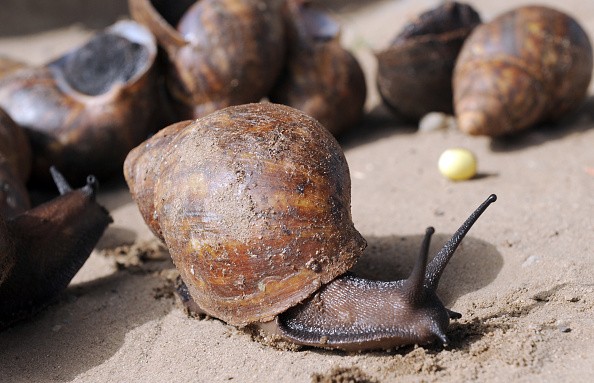A giant invading snail has placed one Florida county under quarantine. It started with a massive python in the Everglades. Now, a big snail the size of a human hand has appeared in the Sunshine State in an area where the weather may not be ideal. Officials, though, are not taking any risks.

Florida's Creepy Crawlies
As if there weren't already enough creepy crawlers in Florida, the enormous African land snail was reintroduced into the state's ecology this week after being eliminated in 2021. The story comes only days after a gigantic python was rescued from the Florida Everglades' thicket last month.
According to the Florida Department of Agriculture and Consumer Services (FDACS), the gigantic African snail, often known as GALS among invasive-species enthusiasts, is endemic to East Africa and may grow to be the size of an adult hand.
Pasco County
Pasco County is around 228 miles northwest of Miami-Dade County, and while the weather isn't radically different, there are several variables that make it less than ideal for the snail to dwell there.
According to AccuWeather Senior Meteorologist Paul Walker, Miami-Dade County is more humid than Pasco County, is 3 degrees warmer on average, and receives 18 inches more precipitation than Pasco County for the year.
As a result, in Pasco County, the enormous African land snail has sought sanctuary in watered areas such as nurseries, house landscaping, and gardens.
Sluggish Invaders
If the weather gets too "unfavorable" for the snails, they will bury themselves in the earth and become dormant for up to a year, according to the FDACS.
According to Christina Chitty, public information director of FSACS, the GALS population in Pasco County is most likely the result of the illicit pet trade.
She stated that although it is illegal to have these snails as pets in the United States, exotic pet owners continue to maintain them. One pet owner, whose location is unknown, uploaded a video of herself snuggling with her gigantic African snail with Metro UK, an English news site.
However, not all owners are as conscientious about their pet snails. When they go out into the wild, either by owners accidentally losing or releasing them, they may breed swiftly, producing up to 2,500 eggs each year.
They're also not fussy eaters. The FDACS describes the huge snails as "one of the most harmful snails in the world," They graze on over 500 different flora and will even eat the paint or stucco off homes as a source of calcium. Snacking on almost everything, the snails may wreak havoc on tropical and subtropical habitats.
The snail also offers a major health danger to people because it contains rat lungworm, a parasite that may cause meningitis in humans and animals. People who touch the snail without gloves or consume unwashed fruit, such as lettuce, that the snail has crawled across, risk being ill, according to the FDACS.
Although the snail's normal pace is "very sluggish," the USDA reports that they may cross long distances fast by clinging to cars and machinery or catching a ride on plants or local food.
Last week, state officials quarantined a stretch of Pasco County in the New Port Richey region in the hopes of confining them. Unlike the COVID-19 quarantine, households cannot move plants, soil, debris, building materials, compost, or yard garbage outside the authorized zone.
No Natural Predators
Because the snails have no natural predators, removing them is difficult. Within the restricted area, officials began applying a snail bait containing metaldehyde, a pesticide allowed for use on fruit trees and other plants in vegetable and decorative crops. The chemical upsets the big African snail's digestive tract and kills it while it eats the baited plants.
According to officials, one of their pest-sniffing canines has been trained to identify GALS in Pasco County. Mellon, the Mollusk Detector Dog "actively scouting for this problem," will sit when it smells the snail. After that, officials will remove any snails and treat the area with snail bait.
Intending to notify the public about the snails' hazard, the FDACS issued a "wanted" poster on Twitter, urging people not to handle the "abnormally huge snail."
Eliminating Snails
According to FDACS, after being found in Miami-Dade County in 1969, these snails were eliminated six years later in 1975. In 2021, FDACS declared the eradication of these snails from Miami-Dade County following a decade-long campaign that gathered 168,000 snails.
Related article : "Swarms of Biblical Proportions" Ravaged Crops in the American West
For more animal news, don't forget to follow Nature World News!
© 2025 NatureWorldNews.com All rights reserved. Do not reproduce without permission.





